-
 क्या आपने हाल ही में दर्पण में अपने चेहरे को सामान्य से थोड़ा भरी हुआ है? विभिन्न तरीके जो चेहरे की चर्बी को कम कर सकता है ।
क्या आपने हाल ही में दर्पण में अपने चेहरे को सामान्य से थोड़ा भरी हुआ है? विभिन्न तरीके जो चेहरे की चर्बी को कम कर सकता है ।
-
 Acne: Causes and Remedies! Get Rid of Acne with These 10 Potent Home Remedies for Pimples!
Acne: Causes and Remedies! Get Rid of Acne with These 10 Potent Home Remedies for Pimples!
-
 Want to Experience the Best Face Scrub for Men(2020)? Here are 8 Face Scrubs for Men for Clear, Fresh and Youthful Skin.
Want to Experience the Best Face Scrub for Men(2020)? Here are 8 Face Scrubs for Men for Clear, Fresh and Youthful Skin.
What is Turmeric
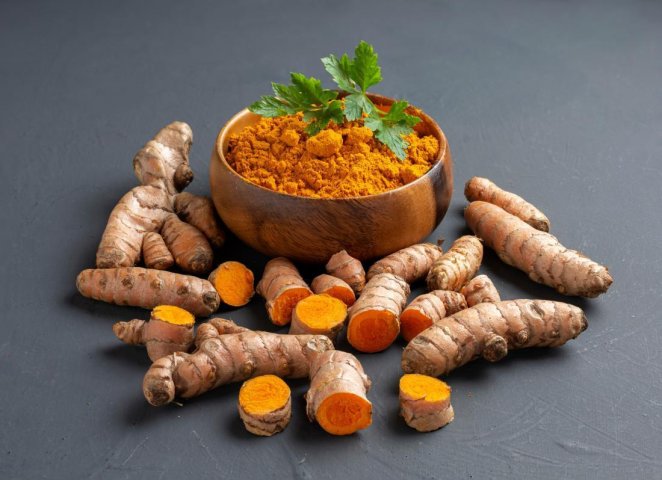
Turmeric is a flowering plant belonging to the ginger family. It is extremely beneficial for not only the skin but also the hair, face, and health of a person, and, therefore, has been a part of ayurvedic medicine for many centuries. It has also been used in cooking and as face masks for radiant and luscious skin.
Native to Southeast Asia and the Indian subcontinent, this plant requires a temperature of 30 degrees Celsius and a lot of rainfall to develop. While some of it is eaten, most are used as rhizomes which are added to either boiling water or used fresh. The boiling forms a yellowish powder used as a flavouring and colouring agent in curries and many other Asian cuisines.
Moreover, turmeric has a bitter but warm taste with a mustard-like aroma. However, it isn't only used on the skin but also for dying purposes due to its amazing colour. It is also used in clinical experiments and for the treatment of many diseases as it contains substances like curcumin which have numerous benefits for our health.
Benefits of Turmeric for the Skin
Delays Aging and Soothes Psoriasis
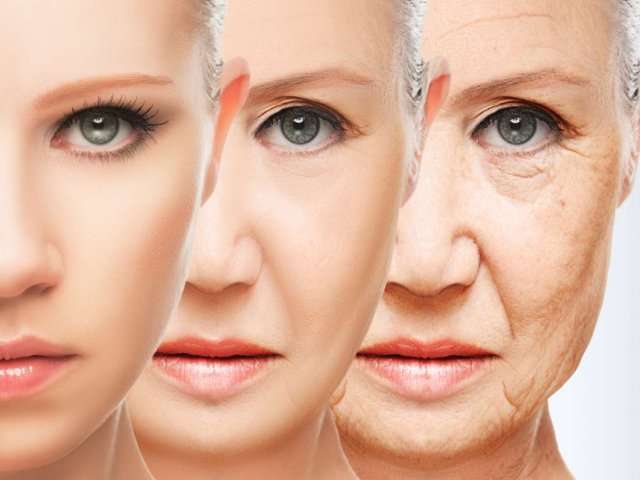
Turmeric contains a strong antioxidant agent that stops free radical production, and, thus, the process of ageing by protecting cells from damaging. The curcumin in turmeric prevents moisture loss and guards against freckles and wrinkles. Also, the curcuminoid pigments in turmeric prevent fine lines, dark spots, and hyperpigmentation. However, if you use too much of the turmeric, the antioxidants can also cause your skin to become dry and dull.
In addition to that, turmeric has anti-inflammatory properties that help relieve psoriasis symptoms. Psoriasis is a skin condition that creates red, flaky, harsh patches of skin covered with silvery scales. The healing properties of the turmeric inhibit cell growth and reduce scales on the skin. Moreover, the antiseptic properties help to heal the wounds and fade the scars.
Helps Fasten the Wound Healing Process, Lighten the Scars, and Glow Up the Skin
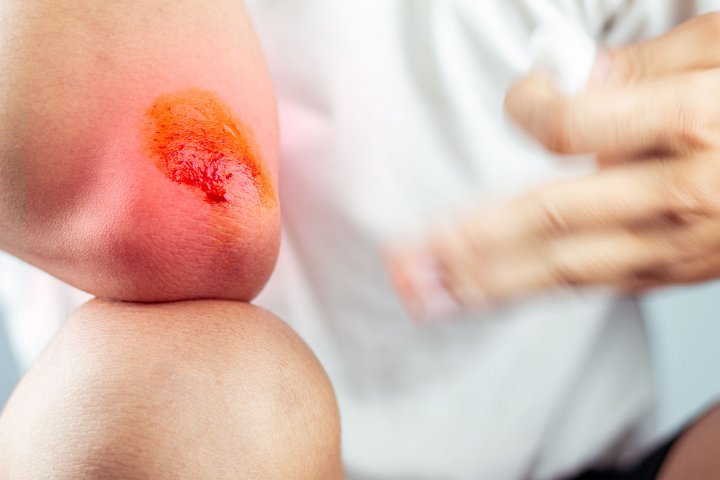
Turmeric has natural healing properties. It contains the antioxidant curcumin which helps to decrease inflammation, and, in effect, relieve pain, and speeds up the stages of wound healing. Also, it helps to build up collagen and boost cell growth that results in bruise healing quickly. Besides, curcumin has the ability to enhance granulation tissue formation which is a tissue that helps to fade away the scars and decrease hyperpigmentation.
In addition to that, the inflammatory and antioxidant elements present in the turmeric reduce excess production of melanin, which assists to even out skin tone and improve the skin texture. Turmeric can also help rebuild your natural glow and treat dark spots. By applying a fine turmeric mask twice a week, you can brighten up your skin while also giving it a radiant effect.
Helps in the Treatment of Scabies, Rosacea, and Some Other Skin Conditions

Scabies is a skin condition caused by Sarcoptes scabiei. These are microscopic mites that live on the skin for months and cause redness, rash, and itchiness to it. Now, various studies have shown that when turmeric is mixed with tea tree oil and neem, it relieves itching and heals the rash on the skin. Furthermore, turmeric helps by cleaning the pores and locking in the skin moisture. The tetrahydro curcumin present in it also reduces redness and diminishes rash while also calming and soothing the skin.
In addition to all that, turmeric also helps with other skin conditions like eczema, dry skin, vitiligo, and scleroderma. The anti-inflammatory properties of curcumin also help lower the inflammation, redness, and soreness of the skin. This active ingredient also helps moisturize the skin deeply and restore its natural tissues, helping to enhance the overall texture.
Benefits of Turmeric for the Hair and Face
Helps with Acne and Cracked Skin

Curcumin is a bioactive ingredient with anti-inflammatory qualities that can target your pores and calm the skin. With the help of its antibacterial and antiseptic properties, turmeric aids in preventing breakouts and treats existing pimples. Furthermore, being an excellent natural exfoliant, turmeric is a rich source of antioxidants, which help to kill the bacteria and increase the collagen formation, thus diminishing acne.
In addition to all that, the hydrating properties of turmeric can help to soothe dry skin and lock in the natural moisture. Also, curcumin helps to neutralize the free radicals which then help in the treatment of dry skin. Turmeric mask also helps to exfoliate dead skin cells for the revelation of soft, smooth, and supple skin with a natural glow.
Great for Exfoliation Purposes and Reduces Stretch Marks
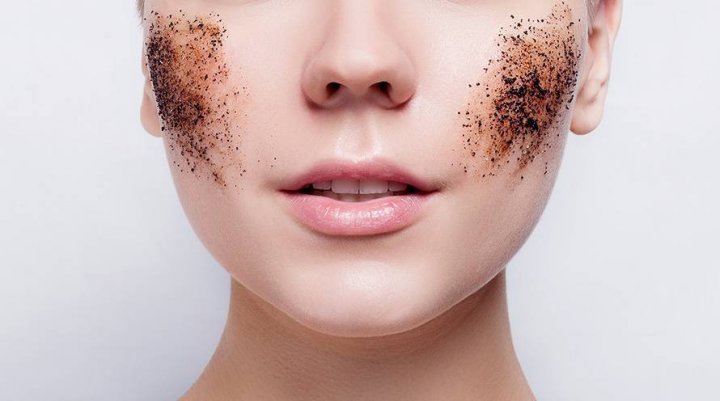
The antioxidative power of turmeric helps it to penetrate and improve the function of the skin membrane cells, which then help to exfoliate the skin. This, then, helps in the prevention of blackheads, creating excess oil, and dead skin cells. Turmeric is especially known to decrease the oil secretion by the sebaceous glands, helping in keeping infections at bay, and, thus, acting as a great exfoliator and giving a juvenile glow to the skin.
In addition to all that, the therapeutic properties of turmeric help fade off the stretch marks and promote even skin tone. The active ingredients in turmeric also help to remove the stubborn stretch marks by stimulating the blood circulation and enhancing the growth of new cells and collagen. Furthermore, the anti-neoplastic and antiseptic abilities of turmeric improve skin elasticity and accelerate skin renewal and healing.
Helps with Hair Growth As Well As Hair Thickening

Turmeric is known to do wonders for hair and skin. For instance, various studies have shown that organic turmeric stimulates hair growth and also improves hair texture. Also, turmeric prevents the shedding and thinning of hair by boosting up the hair follicles.
Moreover, curcumin, which is an active constituent of turmeric, has been confirmed to have properties that help in the preventing of hair loss. It does this by inhibiting the overproduction of DTH or dihydrotestosterone which is the hormone adding to the hair loss. Curcumin also restores the hair growth by penetrating the scalp and supporting the hair’s natural keratin. In addition to all that, the antiseptic and anti-inflammatory properties of turmeric can help soothe the scalp and get rid of dandruff.
Benefits of Turmeric for the Health
Helps with Arthritic Pain and Aids in Digestion

Apart from various skin and hair benefits, turmeric has proven to be beneficial for health as well. For instance, the curcumin present in turmeric has anti-inflammatory properties that are helpful for the ones suffering from rheumatoid arthritis. It alleviates muscle pain and swelling, hence, giving a sense of calmness and relaxation. The antioxidants present in turmeric inhibit the free radicals by preventing body cells and boosting the healing of muscles while also easing up the pain.
In addition to that, turmeric aids in digestion by stimulating the gallbladder. This way, it helps in the production of bile and improves digestion as well as liver functions. Furthermore, it supports the body by stopping the overproduction of the acids that cause flatulence. It also promotes digestion by relaxing the smooth muscles near the intestines and is used in ayurvedic medicine as a digestive healing agent as well.
Boosts the Immune System and Lowers Cholesterol

Turmeric is a natural substance that greatly helps the body by supporting the immune system. It does this by enhancing the immunomodulating capacity of the body while also reducing the amount of active free radicals in the body. This, in turn, helps boost up the immune functions. Also, the lipopolysaccharides present in turmeric have anti-fungal and antibacterial properties that fight the bacteria and help stimulate the immune system.
Furthermore, various studies have shown that turmeric greatly affects cholesterol, LDL cholesterol, and triglyceride levels. It is known to help reduce LDL cholesterol, which is harmful to our health and limit its oxidation, suppressing plaque build-up in arteries. The curcuminoid present in turmeric also lowers the levels of blood fats, and, therefore, helps lower the cholesterol levels. Additionally, it maintains the hormone levels by maintaining a healthy digestive and immune system.
It is Good for the Brain and Also Helps with Diabetes

Curcumin, an antioxidant, working to provide anti-inflammatory properties and lipophilic action, improves the cognitive and brain functions. The rest of the active ingredients of turmeric also promote a sharper memory and curcumin is known to restore the stem cells while also lowering the risks of various brain diseases and stroke.
In addition to all that, turmeric helps to treat diabetes by decreasing the plasma insulin and lowering the sugar level. The tetrahydro curcumin found in turmeric, through its antioxidant and medicinal properties, maintains the hormone levels and helps in the treatment of diabetes. People suffering especially from type-2 diabetes are suggested to take turmeric as it helps steady the insulin levels and boosts up the effects of medicines that people suffering from diabetes take.
Ways You Can Use Turmeric
Face Mask for Face
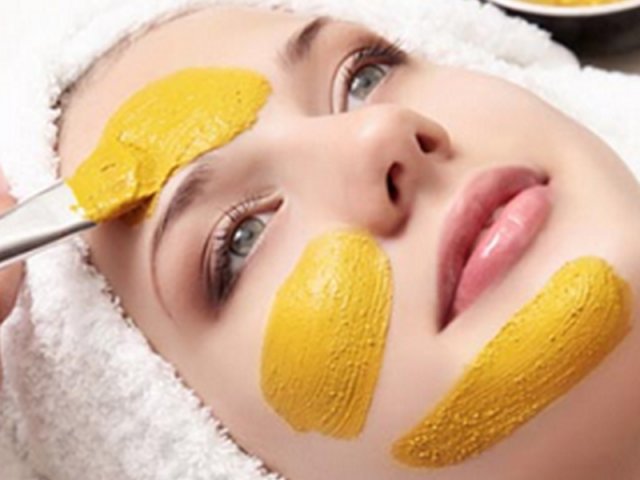
If you are facing hyperpigmentation and wrinkles, then try out this mask. To make this, take half a tablespoon turmeric, one tablespoon of fresh fat-free yogurt, and six to seven drops of lemon juice. For the making process, add all these ingredients to a little bowl and combine well. Now, apply the mixture to your face with the help of a brush. For the applying, rub it in circular motions into your skin and leave it for fifteen minutes. Then rinse it off with regular water and pat a towel on your face.
In case you want to brighten up your face, try this mask. To make it, take one tablespoon of gram flour, one dash of turmeric, half tablespoon of honey, one tablespoon of orange peel powder, and two tablespoons of yogurt. Again, add all the ingredients to a bowl and mix them well to make a thick paste. Next, apply this face pack and let it sit for fifteen minutes. Once the time is over, wash it off with cold water and apply rose water to your face.
Home Remedy for Skin

In order to treat skin conditions like eczema and psoriasis, take one part of finely grounded turmeric powder and a double amount of water. Shift this paste to a non-stick saucepan and let it boil on low heat until the batter turns into a thick paste. Then, place the mixture in a clean bowl and let it cool down properly. After this, apply this paste to the affected areas and cover them with a cling sheet or gauze wrap. Let it stay overnight and rinse it off with lukewarm water in the morning.
A combination of turmeric, honey, and aloe vera gel helps to soothe the skin and reduce the burning. For this reason, if you are suffering from burning sensation of soles and cracked, give this home remedy a try. To make it, take one tablespoon of pure honey, one tablespoon of fresh aloe vera pulp, and a dash of turmeric. Mix all these ingredients well together in a bowl and keep it in the refrigerator for ten minutes. Then, apply this paste to your heels and massage into the skin for five minutes. Once done, wash it off with regular tap water and apply a hydrating moisturizer.
Turmeric Paste for Hair
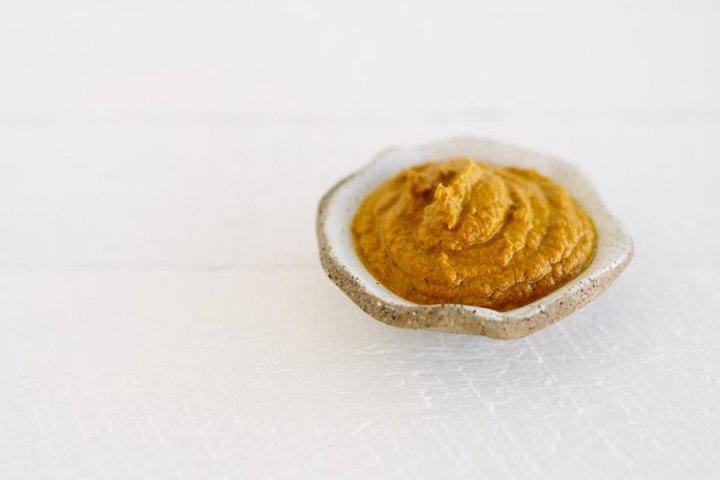
In order to make this turmeric hair mask, mix equal parts of turmeric and extra virgin olive oil into a bowl. Stir both the ingredients until turmeric is combined with oil. Next, apply this mixture to your hair scalp and massage it into it for at least seven minutes. Let it sit for half an hour before rinsing off with regular tap water and mild shampoo. Follow this with a conditioner and hair serum.
Another hair mask that you can try is that of a combination of turmeric, milk, and honey. For this, take a clean bowl and add half tablespoon of turmeric to it. Next, add two tablespoons of lukewarm raw milk and one tablespoon of organic honey and stir until no lumps are left. After this, apply this mixture to your hair scalp and massage it into it for several minutes. Once done, let it sit for fifteen minutes before rinsing off with water and gentle shampoo. Lastly, air-dry your hair and repeat it twice a week.
Turmeric Tea for Health
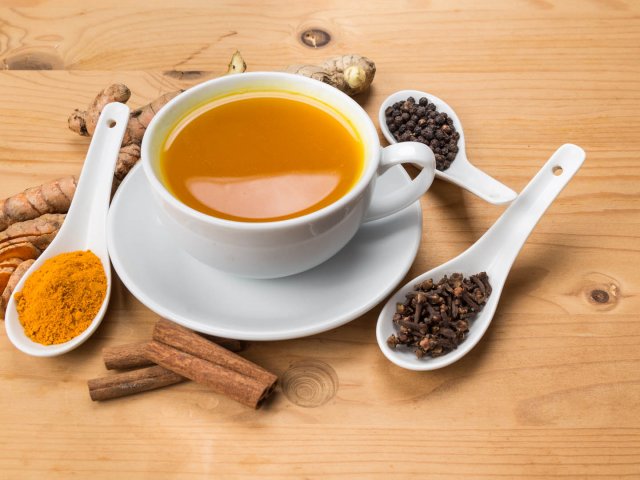
First, for health purposes, you can consume turmeric by adding it to your daily diet. For instance, you can make turmeric tea, turmeric milk, and smoothies. To make turmeric tea, take two cups of water and boil it after adding one tablespoon of turmeric powder to it. Next, add half a tablespoon of black pepper and stir it well before simmering it ten to fifteen minutes. Once done, use a strainer to strain and shift it to the cup. You may also add honey and lemon to add more taste.
For golden milk made up of turmeric and a couple of other ingredients, take one tablespoon of turmeric, some cardamom, a chunk of ginger, two cloves of garlic, and a pinch of black pepper. To make it, boil the milk in a saucepan at medium heat and add vanilla extract. Next, mix it for thirty seconds and all the rest of the ingredients before heating the milk for ten to fifteen minutes. Next, pour it in the glass after straining and enjoy it. You may also add honey to add more taste.
-
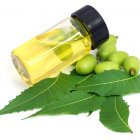 Make the Miraculous Neem Oil a Part of Your Daily Life: Discover the Numerous Uses of Neem Oil and How It Can Give You a Radiant Skin, Lustrous Hair and Overall Health and Wellbeing! (2021)
Make the Miraculous Neem Oil a Part of Your Daily Life: Discover the Numerous Uses of Neem Oil and How It Can Give You a Radiant Skin, Lustrous Hair and Overall Health and Wellbeing! (2021)
-
 How to Reduce Hair Fall? Here are Some Remedies that You Can Try at Your Home to Revive the Hair Follicles and Regain Your Crowning Glory (2021)
How to Reduce Hair Fall? Here are Some Remedies that You Can Try at Your Home to Revive the Hair Follicles and Regain Your Crowning Glory (2021)
-
 Hair Fall: Causes, Home Remedies and Prevention! 10 Home Remedies for Hair Fall You Can Try Safely at Home!
Hair Fall: Causes, Home Remedies and Prevention! 10 Home Remedies for Hair Fall You Can Try Safely at Home!
-
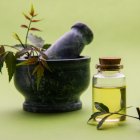 Looking for a Natural Way of Healing Your Body and Rejuvenating Your Soul? Check out the Top Books on Ayurveda to Discover and Adopt the Miracles of This Ancient System of Medicine (2021)
Looking for a Natural Way of Healing Your Body and Rejuvenating Your Soul? Check out the Top Books on Ayurveda to Discover and Adopt the Miracles of This Ancient System of Medicine (2021)
-
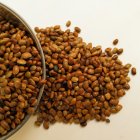 Introduce Your Family to the Multiple Benefits of Horse Gram: Check out Simple and Delicious Horse Gram Recipes and Make This Superfood a Part of Your Family's Regular Diet (2021)
Introduce Your Family to the Multiple Benefits of Horse Gram: Check out Simple and Delicious Horse Gram Recipes and Make This Superfood a Part of Your Family's Regular Diet (2021)
How to Store Fresh Turmeric
Turmeric has positive research backing its ability to reduce inflammation and speed healing, which is beneficial for both medical and cosmetic purposes. Use it in powder form or as an essential oil. Do not intend on using it all at once? It can be happily stored in your freezer. You can store turmeric for many days. For this wrap it in a paper towel and store in the refrigerator inside a Tupperware or airtight bag where it can be kept for a couple of weeks.

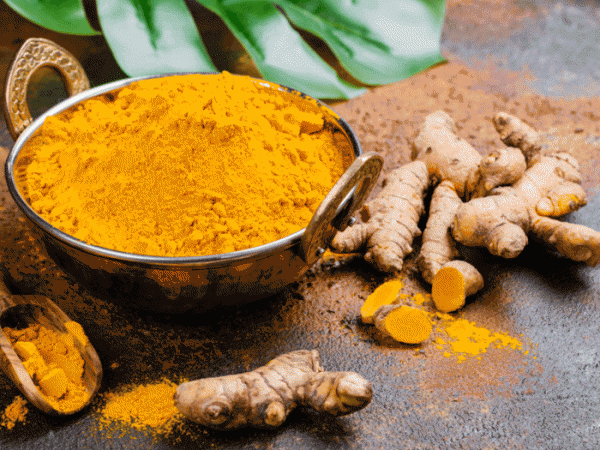
 Highlight the Best Facets of Your Incomparable Beauty: Discover the Best Face Highlighter Currently Available in India and Everything You Need to Know About Using Face Highlighters for Maximum Effect (2023)
Highlight the Best Facets of Your Incomparable Beauty: Discover the Best Face Highlighter Currently Available in India and Everything You Need to Know About Using Face Highlighters for Maximum Effect (2023)
 Forget the Blemishes and Get that Picture Perfect Flawless Radiance on Your Face: Check out the Best Foundations for Oily Skin Currently Available in India and Everything You Need to Know About Makeup Foundations (2023)
Forget the Blemishes and Get that Picture Perfect Flawless Radiance on Your Face: Check out the Best Foundations for Oily Skin Currently Available in India and Everything You Need to Know About Makeup Foundations (2023)
 Make Your Presence Felt Wherever You Go: Discover the Best Perfumes Under 2000 for Both Men and Women to Announce Your Arrival and Make Any Occasion Memorable (2023)
Make Your Presence Felt Wherever You Go: Discover the Best Perfumes Under 2000 for Both Men and Women to Announce Your Arrival and Make Any Occasion Memorable (2023)
 Protect Your Oily Skin from the Harmful Rays of the Sun: Discover the Best Gel Based Sunscreens for Oily Skin and Everything You Need to Know Before Buying One (2023)
Protect Your Oily Skin from the Harmful Rays of the Sun: Discover the Best Gel Based Sunscreens for Oily Skin and Everything You Need to Know Before Buying One (2023)
 Minor Blemishes and Wrinkles Affecting Your Confidence? Check out the Best BB Creams to Conceal Your Worries and Nourish Your Skin to Restore the Healthy, Radiant and Glowing Complexion Back Again (2023)
Minor Blemishes and Wrinkles Affecting Your Confidence? Check out the Best BB Creams to Conceal Your Worries and Nourish Your Skin to Restore the Healthy, Radiant and Glowing Complexion Back Again (2023)
